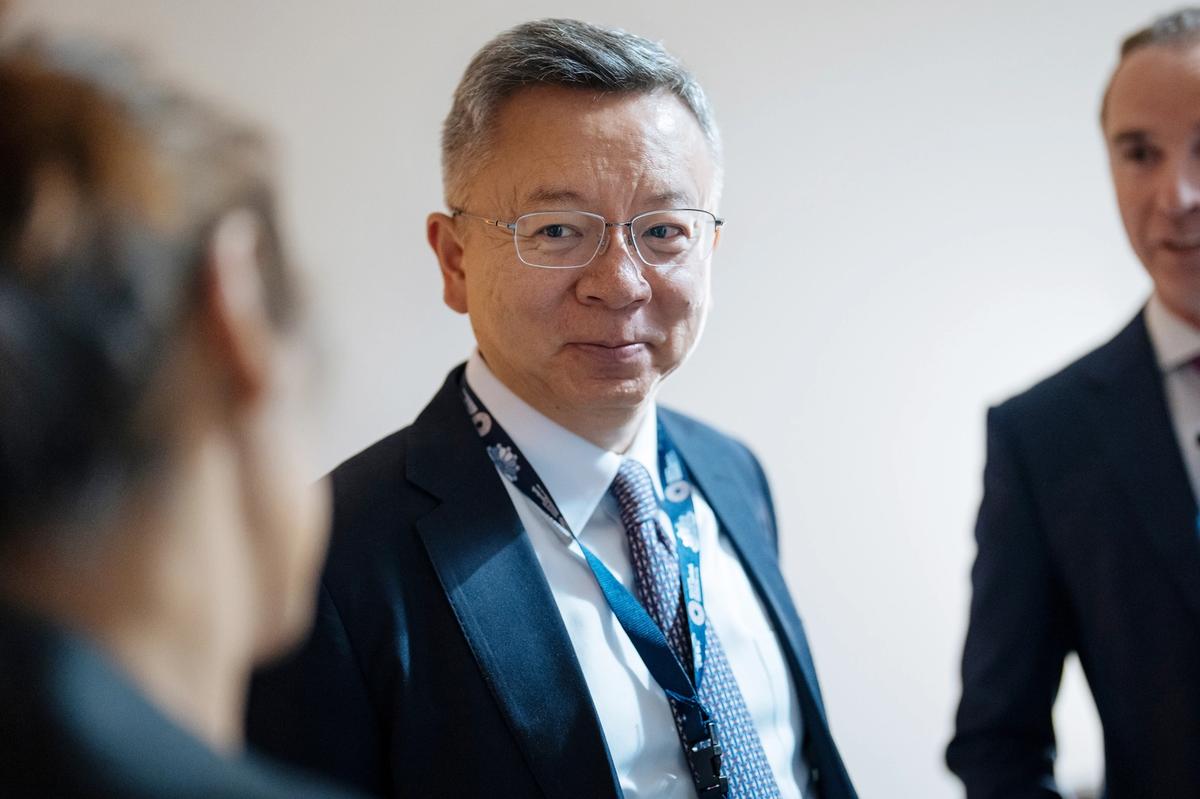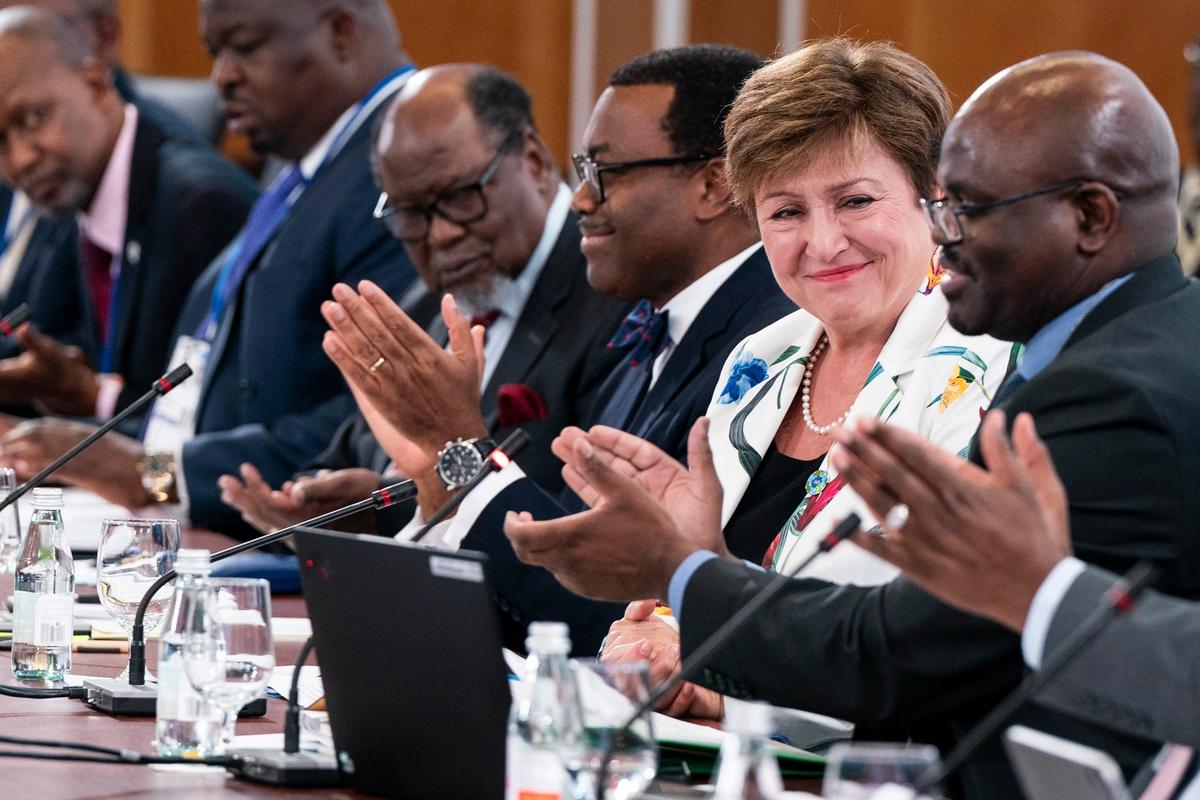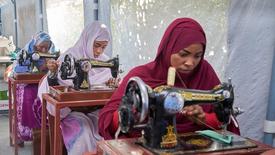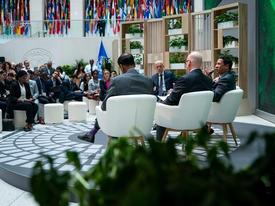Accountability

The IMF is accountable to its 191 member countries and has a system of checks and balances to ensure accountability—ranging from internal and external audits to risk management and evaluation of its policies and operations. Similarly, the IMF staff is expected to observe the highest ethical and workplace standards of conduct.
Committees of the Executive Board
Board committees examine issues under their purview in greater detail and forward to the full Board matters that require further discussion. Board committees are not decision-making bodies; only the full Board can make decisions. Board committees are reconstituted every two years following the regular election cycle for Executive Directors. The composition of committee members takes into account geographic and gender balance; a need for rotation, with some continuity; and maintenance of a reasonable distribution of the burden of committee work among Executive Directors. Executive Directors may participate in all meetings of the Executive Board’s committees, except for the Ethics Committee, as its meetings are restricted to members and the permanent secretary of the committee. There are currently seven committees of the Executive Board and one working group on gender diversity.
- Committee on Agenda and Board Procedures (APC): To make recommendations to the Executive Board to support the development and orderly implementation of an effective management-guided work program and agenda of the Executive Board. To this end, the Committee shall promote procedures for timely document distribution, the conduct of Board meetings, timing, logistics, and related matters as to avoid bunching in the Board’s schedule, allow for adequate time for preparation by Executive Directors, and enable the efficient use of time spent in Board meetings.
- Committee on Executive Board Administrative Matters (CAM): To consider and report to the Executive Board for decision general aspects of administrative policy relating to the Executive Directors, Alternates or their Senior Advisors, Advisors, and Administrative Assistants, referred to it by the Executive Board or by an Executive Director. Individual cases which involve individual Directors or Alternates or their Senior Advisors, Advisors, and Administrative Assistants with no wider implications shall be considered and decided by the Committee upon the request of an Executive Director without reference to and consideration by the Executive Board. The Committee may consider and make recommendations on the specific administrative policy involved. To develop, consider, and report to the Executive Board for decision, budgetary proposals for the aggregate and individual Offices of Executive Directors and to carry out those related budgetary responsibilities assigned to the Committee by the Board.
- Ethics Committee (EC): To consider matters relating to the Executive Board’s Code of Conduct. In addition, if requested by Executive Directors, the Committee gives guidance to them on ethical aspects of conduct, including the conduct of their Alternates, Senior Advisors, Advisors, and Administrative Assistants. The Ethics Committee is also responsible for advising on issues that may arise in connection with the application of the standards of ethical conduct to the Managing Director pursuant to the Managing Director’s contract.
- Evaluation Committee (EVC): To follow closely the evaluation function in the IMF and advise the Executive Board on matters relating to evaluations, including those of the IEO. The Committee also considers the Annual Report, with ad hoc staff membership.
- Committee on Liaison with the World Bank and Other International Organizations (LC): With a view to promoting greater coherence in the international economic, financial, trade, and development agenda, particularly respecting economic capacity building, the Committee shall take stock of developments in the policies and programs of other international organizations with complementary mandates to that of the IMF, in particular the World Bank and the World Trade Organization. The Committee shall gather information on, and maintains close liaison with, these institutions as needed, with a view to keeping abreast of evolving developments. It makes recommendations to the Executive Board regarding IMF relations with these organizations, as appropriate.
- Pension Committee (PC): To decide all matters of a general policy nature arising under the Staff Retirement Plan, and all other matters, including any interpretation of the provisions of the Plan, required to be decided by it under the provisions of the Plan or submitted to it by any Committee appointed by it.
- Ad Hoc Audit Selection Committee (ASC): The ad hoc Audit Selection Committee (ASC) is convened to recommend a suitable candidate as a new member of the External Audit Committee (EAC) whose staggered three-year appointments leave a vacancy every year. Traditionally, five Executive Directors have comprised the ASC.
- Working Group on Gender Diversity: To promote more inclusive, credible, and strengthened decision-making by the Executive Board through enhanced representation of women on the Board, and Senior Advisors and Advisors in the Offices of the Executive Directors. To this end, the Working Group shall develop recommendations for the Executive Board on its evolving gender diversity strategy; promote that strategy within the Board and with the membership; and regularly report progress toward implementation of the strategy to the Executive Board, for referral to the Board of Governors.


Checks and Balances
The IMF conducts audits of all its operations. Audit mechanisms are set up to improve governance, transparency, and accountability and include an external audit firm, the independent External Audit Committee, and the Office of Internal Audit (OIA).
The External Audit Committee is independent of the IMF and its Executive Board. The committee reports to the Board of Governors and is responsible for overseeing the IMF’s external audit, internal audit, financial accounting and reporting, risk management, and internal control functions.
The OIA is an independent assurance and advisory function designed to protect and strengthen the IMF. The OIA’s mandate is twofold: (1) to assess the effectiveness of the IMF’s governance, risk management, and internal controls; and (2) to act as a consultant for the improvement of the IMF’s business processes by advising on best practices. To ensure its independence vis-à-vis IMF departments and offices, the OIA reports directly to the Managing Director and maintains a functional reporting relationship with the External Audit Committee. The OIA’s 2024 coverage encompassed several key areas, including support for the IMF’s modernization programs, benchmarking of the IMF’s review process, the identity and access management program, the managed services provider model for information technology, and a corporate data warehouse.

Precautionary Balances
The IMF’s precautionary balances—which consist of adjusted balances in the general and special reserves—are a key element of the IMF’s multilayered framework for managing financial risk and safeguarding members’ resources. Precautionary balances provide a buffer to protect the IMF against potential losses resulting from credit, income, and other financial risks. For this reason, they help protect the value of reserve assets represented by member countries’ positions in the IMF and underpin the exchange of assets through which the IMF provides financial assistance to countries with balance of payments needs.
The Executive Board of the IMF conducted the 2024 review of the adequacy of the IMF’s precautionary balances on March 20, 2024, and supported increasing the minimum floor from SDR 15 billion to SDR 20 billion. The medium-term precautionary balances target of SDR 25 billion remained unchanged and was reached at the end of FY 2024, the first time since the introduction of the framework.


Managing Enterprise Risks
The Office of Risk Management (ORM) carries out a centralized risk management function of the IMF. It constitutes the second line in the IMF’s risk management and governance architecture, providing independent risk oversight and challenge of first-line enterprise risk assessments to ensure consideration of the most critical risks and their respective risk treatments across all IMF’s activities. ORM steers and supports the implementation of the IMF’s enhanced enterprise risk management framework approved by the Executive Board in December 2022 and the revised risk tolerance statements and risk tolerance levels approved in March 2023. It enhances risk-based decision-making at the IMF by providing leadership and through innovation in assessing and analyzing enterprise strategic, business, operational, financial, reputational, and environmental, social, and governance risks.

Learning from Experience
The Independent Evaluation Office (IEO) conducts objective and independent evaluations on issues relevant to the IMF mandate. The IEO is fully independent of IMF management and staff, operating at arm’s length from the Executive Board. Its purpose is to enhance the learning culture within the IMF, strengthen the institution’s external credibility, and support the Executive Board’s institutional governance and oversight responsibilities. In FY 2024, the IEO launched three evaluations covering the evolving application of the IMF’s mandate, its exceptional access policy, and the its fiscal policy advice. More information about the IEO is available at https://ieo.imf.org.


Ethics and Staff Conduct
The IMF has a comprehensive ethics framework. The Ethics Office advises management and the IMF’s Human Resources Department on the promotion of ethical standards within the IMF; and provides information, education, training, and outreach, confidential advice and guidance to IMF personnel on the rules of conduct. It oversees the Annual Ethical Conduct and Core Values Certification and the Financial Disclosure Program for IMF Staff. During FY 2024, the Ethics Office launched two new e-learning courses regarding international civil servants’ status and conflicts of interest and was consulted on policy development initiatives, including the IMF personal data privacy policy and guidelines on the responsible use of internal AI tools.
The ombudsperson is a confidential, impartial, independent, and informal resource for resolving employment-related problems. The Office of Internal Investigations conducts inquiries and investigations into allegations of misconduct, including breaches of the code of conduct. The IMF Integrity Hotline, administered by an independent third party, is available for anonymous and confidential reporting by staff members or members of the public of suspected misconduct involving IMF employees.
On December 16, 2022, the IMF’s Executive Board endorsed an implementation plan to further strengthen the framework of institutional governance and analytical integrity, corresponding to the Institutional Safeguards Review (ISR), which was considered by the Executive Board on June 30, 2022.
On December 21, 2023, the Board issued a statement on the status of the implementation plan, noting that the IMF has made substantial progress in advancing the plan’s actions following the conclusion of the ISR. As of December 2023, 85 percent of these actions have been completed or remain on track for completion. Nearly all of the recommendations to further protect and strengthen data analysis and integrity have been fully carried out through the issuance of specific guidance. The comprehensive implementation plan has progressed significantly and has built further trust in and strengthened the dispute resolution system, ethics, and investigation offices.

Engagement with the Public
The IMF meets regularly with political leaders and country authorities and routinely engages with a wide range of private sector representatives, the media, and nongovernment stakeholders such as the academic community, civil society organizations, parliamentarians, labor unions, and youth leaders. Opportunities for such two-way dialogue allow the IMF both to explain its approaches and to learn from others to improve its policy advice.
Box 3.1
Safeguards Assessments
When the IMF provides financing to a member country, it carries out a safeguards assessment to obtain reasonable assurance that the country’s central bank can appropriately manage IMF resources and provide reliable monetary data on an IMF-supported program.
The assessments involve an evaluation of central bank operations in six areas:

The assessments involve an evaluation of central bank operations in six areas: (1) governance arrangements, (2) external audit mechanism, (3) legal structure and autonomy, (4) financial reporting framework, (5) internal audit mechanism, and (6) system of internal controls. From 2000 to the end of April 2024, 400 assessments were conducted, covering 106 central banks; 19 of these assessments were completed in FY 2024 and 8 were in progress at the end of the financial year.
The IMF also monitors progress of central banks as they work to improve their safeguards frameworks. The monitoring continues for as long as IMF credit remains outstanding, and about 84 central banks are currently subject to monitoring.
The IMF also conducts fiscal safeguards reviews of state treasuries when a member requests exceptional access to IMF resources in cases in which a substantial portion of the funds—at least 25 percent—is directed toward financing the state budget, and in cases of high combined credit exposure with at least 25 percent of resources also directed to budget financing. During FY 2024, one fiscal safeguards review was conducted, and one was in progress at the end of the year.
Safeguards seminars are also performed as part of outreach activities. During FY 2024, four in-person regional seminars were held and covered best international practices in the safeguards’ framework areas. Notably, an inaugural regional forum on governance was held in Armenia, in conjunction with the Central Bank of Armenia, consistent with the 2022 safeguards assessment policy review proposal to conduct such outreach on a regional basis. An eighth high-level central bank governance forum in Dubai was conducted and covered emerging topics such as artificial intelligence, fintech, and climate change among other governance topics.


